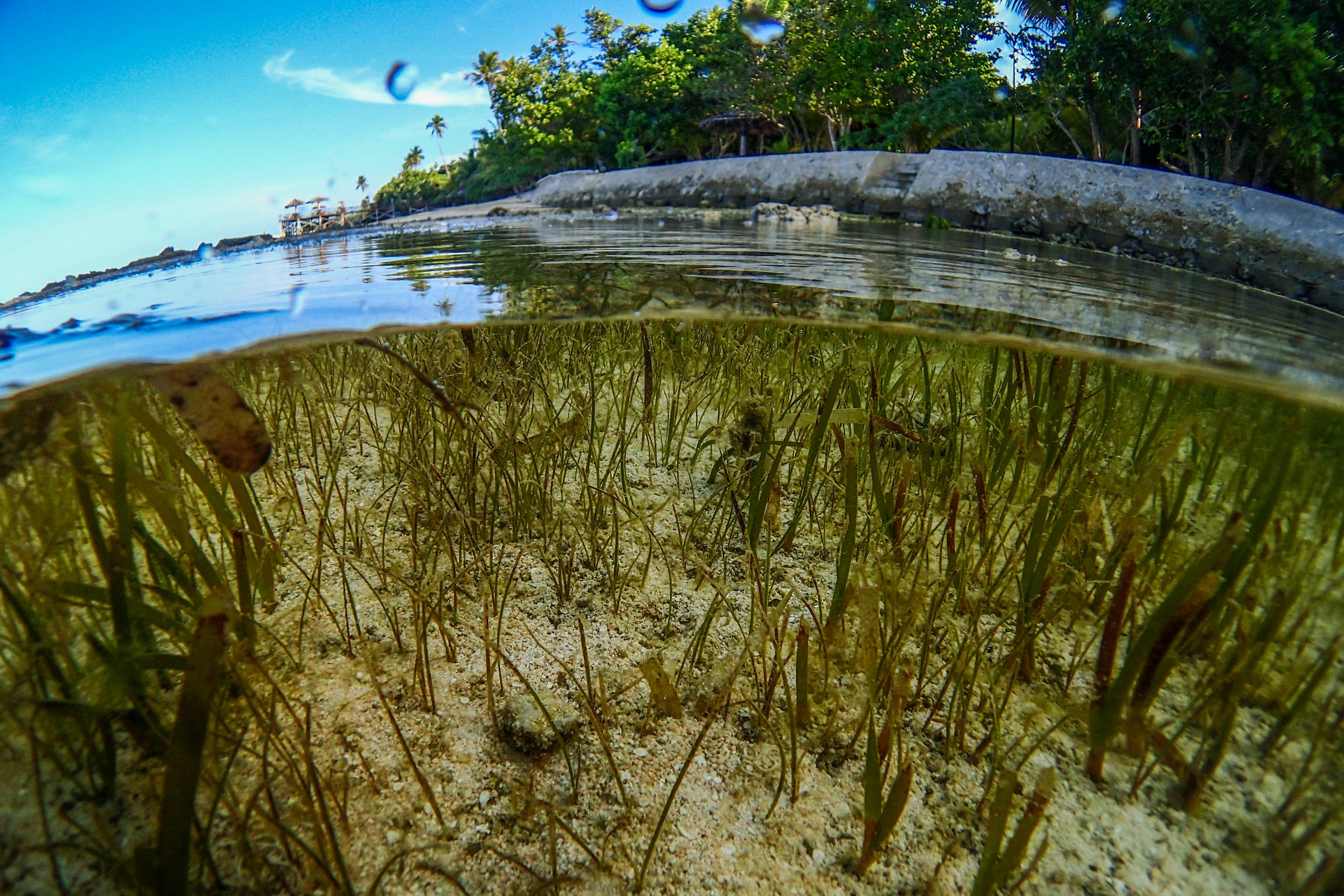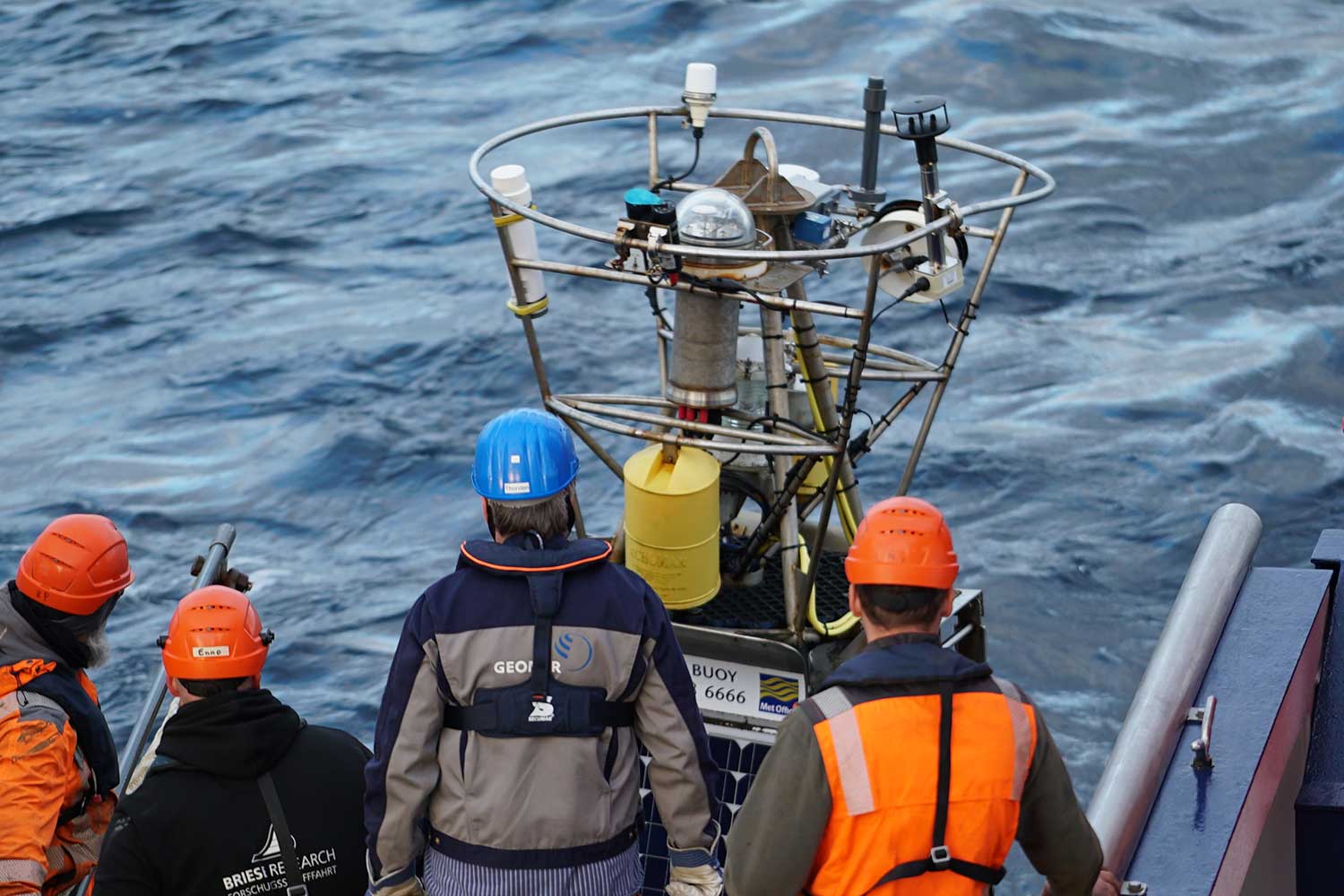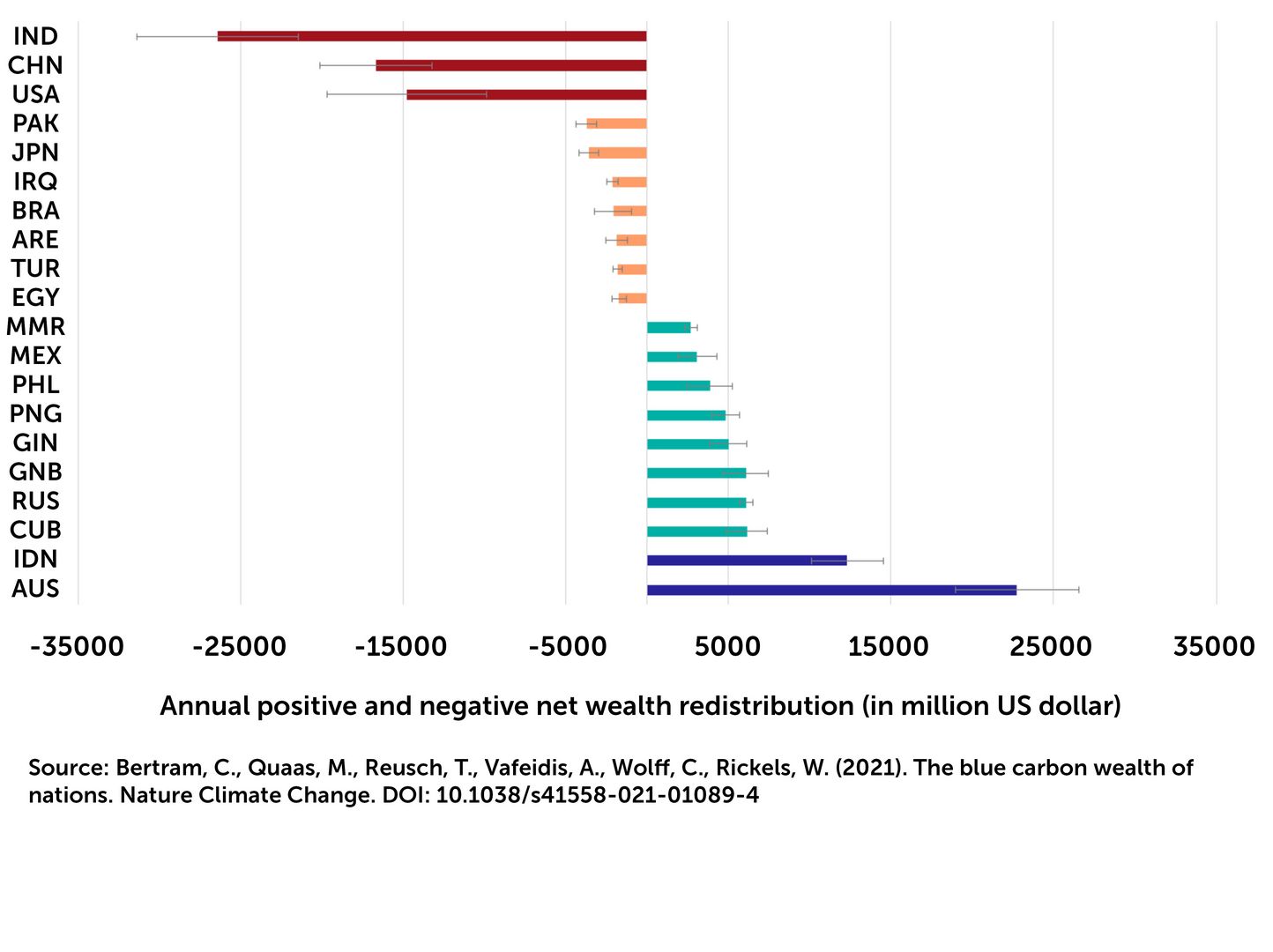Besides Australia, Indonesia and the USA provide the largest carbon storage potential with their coastal ecosystems, according to calculations by Christine Bertram (Kiel Institute, until February 2021), Martin Quaas (iDiv and Leipzig University), Thorsten Reusch (GEOMAR), Anthanasios T. Vafeidis, Claudia Wolff (both Kiel University) and Wilfried Rickels (Kiel Institute), which have just been published in Nature Climate Change entitled "The blue carbon wealth of nations."
The team has also calculated which countries benefit most from the coastal CO2 uptake worldwide. The different ways in which countries are affected by climate change are quantified by using the so-called social costs of carbon.
"If we take into account the differences in marginal climate damages that occur in each country, we find that Australia and Indonesia are clearly the largest donors in terms of globally avoided climate damages originating from coastal CO2 uptake, as they themselves derive comparatively little benefit from the high storage potential of their coasts," says Wilfried Rickels, who heads the Global Commons and Climate Policy Research Center at the Kiel Institute. "The US, on the other hand, also store a lot of carbon in their coastal ecosystems, but at the same time benefit the most from natural sinks behind India and China. In monetary terms, the three countries realize annual welfare gains of about 26.4 billion US dollars (India), 16.6 billion US dollars (China) and 14.7 billion US dollars (US) thanks to global coastal ecosystems and the resulting lower climate impact costs."
The basis for the monetary calculations are the so-called social cost of carbon, which allow assessing the contribution of coastal carbon uptake in the "inclusive wealth" concept. "Inclusive wealth" is defined as the totality of all natural and man-made capital stocks, valued with so-called shadow prices, i.e. the contributions to social welfare. Among other factors, the absolute scarcity of resources plays an important role for shadow prices. Atmospheric CO2 has a negative impact on welfare primarily through climate change. However, countries are differently affected by climate change and accordingly country-specific shadow prices are used in the study.
The analysis does not include other carbon sinks or emissions from energy and industry. When carbon emissions from energy and industry are also considered, only Guinea-Bissau, Belize, Vanuatu, Sierra Leone, Solomon Islands, Guinea, Comoros, Samoa, Madagascar, and Papua New Guinea make a net positive contribution through their coastal ecosystems, since they store more CO2 in coastal ecosystems than they emit in total.
The study also emphasizes that carbon storage is only a small part of positive impacts of coastal ecosystems for humans. "Coastal ecosystems are an essential component of marine ecosystems and are therefore particularly important for marine biodiversity and for fisheries. At the same time, they contribute to flood and coastal protection and are therefore important for adaptation to climate change," emphasizes Martin Quaas, who heads the Biodiversity Economics research group at the German Centre for Integrative Biodiversity Research (iDiv) at Leipzig University.
Access to the paper: www.nature.com/articles/s41558-021-01089-4
Scientific Contact:
Dr. Wilfried Rickels
Kiel Institute for the World Economy
Director, Global Commons and Climate Policy
+49 431 8814-408
wilfried.rickels@ifw-kiel.de
…




